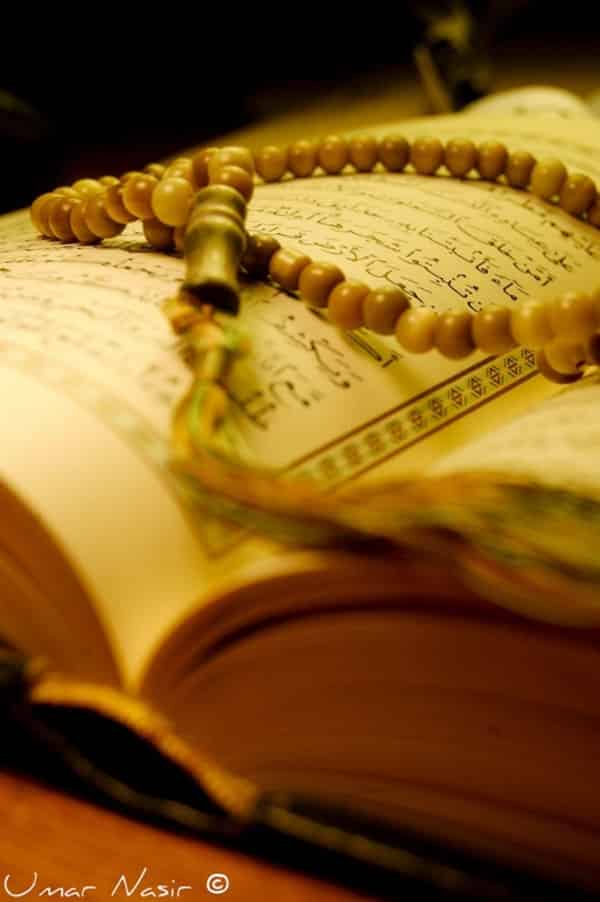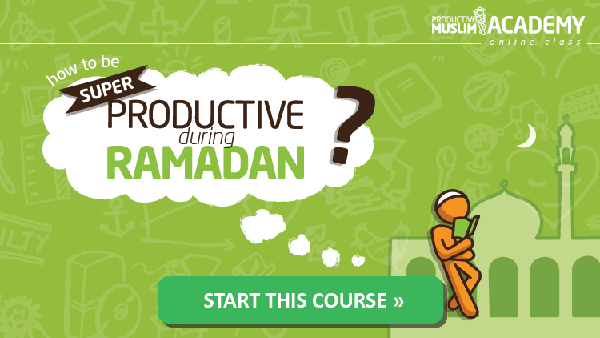![]()

“I can’t wait for Ramadan to come, it’s my favourite time of year”
“Ramadan is the one thing I’m looking forward to”
I would feel guilty and confused. My thoughts went along the lines of:
“I’m gonna have work during Ramadan, I’m going to have exams, I’m going to be fasting for 19 hours in the heat, what am I going to do? How will I wake up for suhoor and then wake up for work, my sleeping pattern is going to be so messed up. Ramadan is gonna be so hard this year, and for all the upcoming years too!
These are the thoughts that would run through my head. When people had Ramadan plans of how much Qur’an they were going to read and how to utilise every minute they had in worship, I had Ramadan plans on how to pass the hours by making lists of TV series to watch, and napping whenever I had free time. As a result of this I wasn’t able to make the best of this special month.
Reflecting on Ramadan and realising that actually Allah  never gives a believer a burden bigger than they can bear, I realised I didn’t need to dread Ramadan or be worried about how hard it would be fasting long hours in summer. Even if it was hot, even if the days were long, fasting wasn’t something that should halt my productivity, nor was it impossible to get through. Once my mentality had changed, I was able to welcome Ramadan and shift my focus entirely from ‘how will I get through the day?’ to ‘how can I make the best of my day?’ If you’re experiencing the same feelings, then let me share with you my tips.
never gives a believer a burden bigger than they can bear, I realised I didn’t need to dread Ramadan or be worried about how hard it would be fasting long hours in summer. Even if it was hot, even if the days were long, fasting wasn’t something that should halt my productivity, nor was it impossible to get through. Once my mentality had changed, I was able to welcome Ramadan and shift my focus entirely from ‘how will I get through the day?’ to ‘how can I make the best of my day?’ If you’re experiencing the same feelings, then let me share with you my tips.
Go back to the Qur’an
It sounds simple but this changed everything for me. You often hear that the purpose of fasting is that we can feel hunger, so this became embedded in my mind – this is a month of being hungry so we can feel grateful. However, I watched a lecture by Nouman Ali Khan where he talked about how beautifully Allah  discussed this month in the Qur’an:
discussed this month in the Qur’an:
“The month of Ramadan [is that] in which was revealed the Qur’an, a guidance for the people and clear proofs of guidance and criterion… Allah intends for you ease and does not intend for you hardship and [wants] for you to complete the period and to glorify Allah for that [to] which He has guided you; and perhaps you will be grateful”. [Qur’an: Chapter 2, Verse 185]
Allah  didn’t describe Ramadan as the month of going hungry. It was the month in which the Qur’an was revealed. It is a month where Muslims can turn back to Allah
didn’t describe Ramadan as the month of going hungry. It was the month in which the Qur’an was revealed. It is a month where Muslims can turn back to Allah  and become righteous. It is not intended to be a month of hardship, but rather a month of benefit. Once I heard this, my perspective shifted and I realised I should not see Ramadan as a difficulty. There were unlimited blessings and rewards up for grabs in this month, and rather than focusing on the hunger, I started focusing on how I could become more connected spiritually and strengthen my relationship with the Qur’an.
and become righteous. It is not intended to be a month of hardship, but rather a month of benefit. Once I heard this, my perspective shifted and I realised I should not see Ramadan as a difficulty. There were unlimited blessings and rewards up for grabs in this month, and rather than focusing on the hunger, I started focusing on how I could become more connected spiritually and strengthen my relationship with the Qur’an.
Fasting is not poverty simulation
Having internalised that I shouldn’t view Ramadan as a month of physical hardship, I began reflecting deeply as one of my friends told me something that I would never forget:
“Fasting is not poverty simulation”
I used to think that the purpose of fasting is to empathise with the poor by enduring hunger and thirst. But it is much deeper than that. Fasting is prescribed to us to gain taqwa of Allah  , to shed bad habits and ego and cultivate good character and deeds. This is a perfect chance for you to renew your intention and give da’wah about the true purpose of fasting, as Allah
, to shed bad habits and ego and cultivate good character and deeds. This is a perfect chance for you to renew your intention and give da’wah about the true purpose of fasting, as Allah  says:
says:
“O you who have believed, decreed upon you is fasting as it was decreed upon those before you that you may become righteous”, [Qur’an: Chapter 2, Verse 183]
Throw away the procrastination list
I scrapped and replaced all those TV series I had planned to watch, with Islamic lectures including seerah and tafsir, and I also signed up to free online courses on languages and computer science – I decided I was up for learning anything as long as it was a productive use of my time. There is a wealth of knowledge out there to be gained, and for those who have summer holidays, you have many hours in the day to learn new things so you can really take advantage.
However, this is obviously much harder if you’re working. If you are working full time during Ramadan, it is important to focus on creating a few realistic goals that will bring you closer to Allah  .
.
- This can include simple actions like:
- Listening to a lecture instead of the radio on your commute. If your commute to work and back is at least 30 minutes, that’s 5 hours a week you will have spent in ibadah learning about Allah

- Incorporating sunnah prayers and dhikr with every salah
- Giving money to charity
- Memorising just 1 ayah a day of the Qur’an
Never underestimate the value of small deeds, as our beloved prophet Muhammad  said:
said:
“The acts most pleasing to Allah are those which are done continuously, even if they are small.” [Muslim].
Eat smarter
It is no doubt that when you fast for 18 hours, you will definitely get hungry at some point in the day; there are ways to manage your diet and ensure that you have enough energy to sustain you throughout the day. What I used to do was have five huge glasses of water at suhoor, thinking this would ensure I wouldn’t get thirsty throughout the day! Of course I realised that this was one of the silliest things I could do since I wouldn’t retain the majority of that water.
Instead I decided to follow two crucial things that the our beloved prophet  used to do:
used to do:
- Eat dates. They are full of slow releasing energy and so have many health benefits. If you are someone who dislikes dates (like I used to be) try a new kind of dates. There are so many different types of dates, you’ll find something that you like for sure.
- Follow the concept of one-third food, one-third water, one-third air, as narrated by our beloved Prophet
 :
:
“It is sufficient for a human being to eat a few mouthfuls to keep his spine straight. But if he must (fill it), then one third of food, one third for drink and one third for air.’ [Ibn Majah]
Additionally, as a result of fasting we become unable to consume as much food as we are normally able to, but our hunger tries to convince us otherwise, leading to over-eating at iftar – until they feel too sick, tired and lazy to continue with ibadah.
Remember Ramadan is not a month of feasting, where you compensate for not having eaten the whole day. It is a month of spiritual gain and so the focus should not be on spending hours in the kitchen cooking elaborate meals, especially when the nights are short.
Immerse yourself in worship
Ramadan is truly a special month, shaytan is tied up and there are unlimited rewards up for grabs. If you are someone who has struggled with enjoying Ramadan and making the most of it, then let this Ramadan be a change. If you are someone who loves Ramadan, but is feeling nervous about the long hours, then try to make this Ramadan your best Ramadan. Set yourself achievable targets in Qur’an and ibadah, and use this month to really make progress. Whether you make the intention at the beginning or middle of Ramadan, it is not too late!
But don’t burn out!
Making the transition from day-to-day worship to full time ibadah during Ramadan can be daunting. You know that feeling when Ramadan starts, you have a boost of imaan, you’ve decided that you’re going to stay up until fajr, read at least one juz of Qur’an everyday and attend taraweeh every night? However, by day seven and you’ve fallen behind on your reading, the exhaustion starts to hit you and you give up!
Take Ramadan like running a marathon, not a 100m sprint. Marathon runners start slow conserving their energy, building up stamina and then push hard in the last few miles. Take it steady, listening to your body when you need rest but not wasting precious time and energy either. Small and consistent acts of worship will ensure that you don’t burn out. Then, if we reach the last ten nights in sha Allah, you can pick up the pace and really give it your all. If you fall, don’t beat yourself up – this is the month of mercy – repent and ask Allah  to keep you steadfast.
to keep you steadfast.
Ramadan is not a temporary spiritual boost for thirty days – it is a glimpse of what you are capable of achieving everyday of the year so you can push yourself and realise your potential. It is a month of training to strengthen your relationship with the Almighty  so that when the month is over, you are a better Muslim, who has hopefully shed bad habits and gained good ones!
so that when the month is over, you are a better Muslim, who has hopefully shed bad habits and gained good ones!
Two people will fast the month of Ramadan, but one will come out stronger than the other. For that person, Ramadan wasn’t about going hungry, it was about feeding the soul. Will you be that person? Share your reflections in the comments below!
![]()





